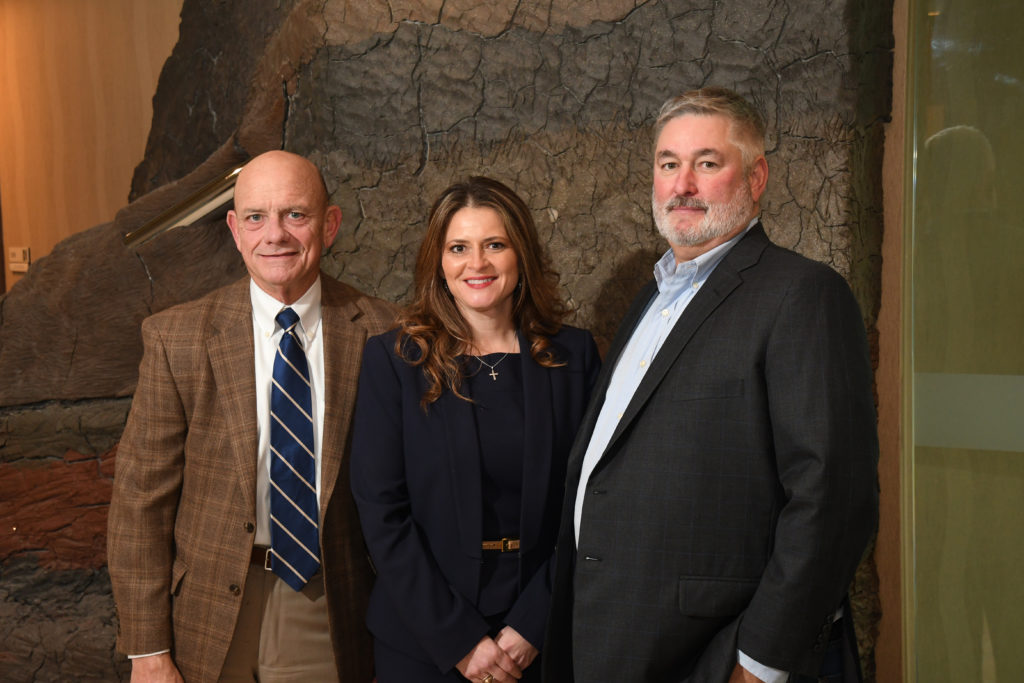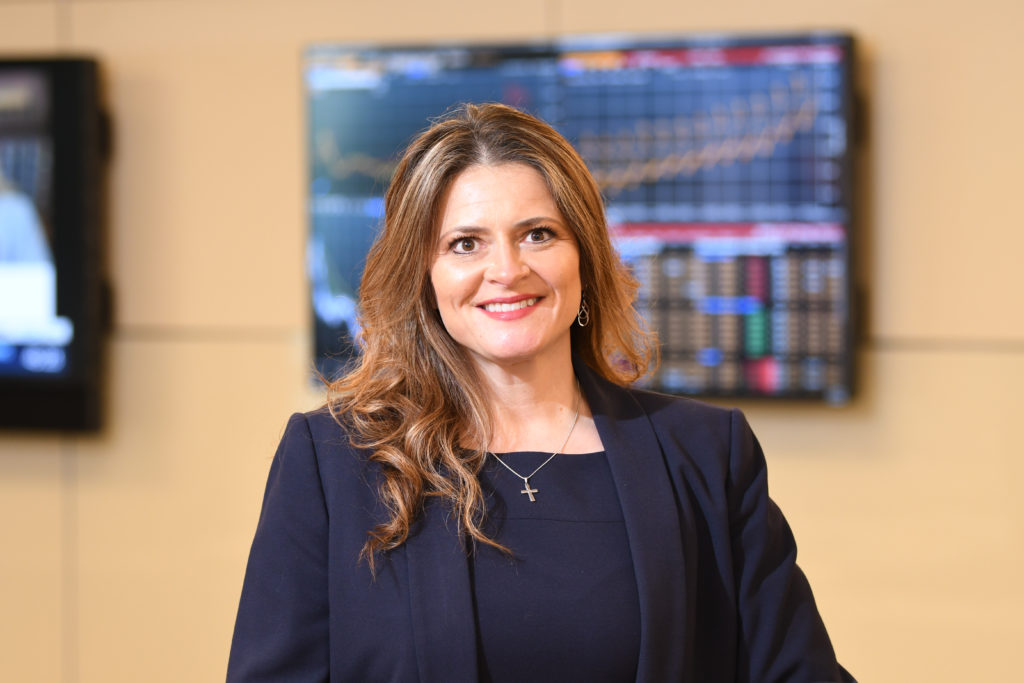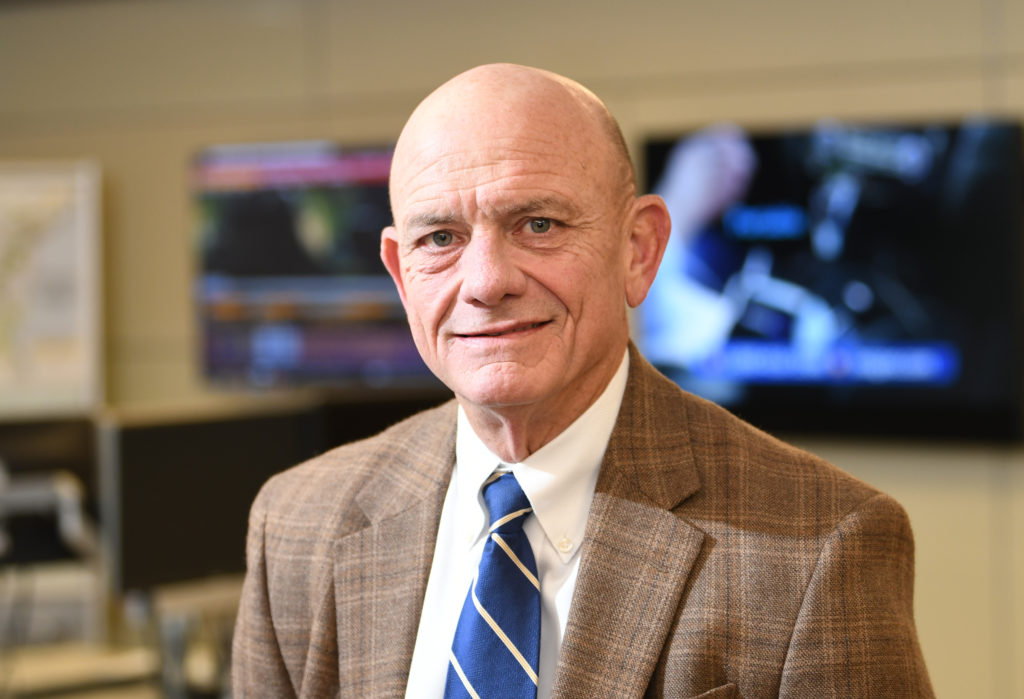
For the past two decades, there’s been an unspoken rule among oil and gas producers: If Oklahoma royalty owners sue you for claims involving the state’s marketable condition rule, you’re screwed.
For many reasons, it’s almost unheard of to take any avenue beyond settling. In fact, trials in these cases are so daunting that hardly anyone in the industry has bothered defending themselves before a jury since 2001 in Bridenstine v. Kaiser-Francis. In that case, Tulsa-based Kaiser-Francis got hit with a nine-figure judgment that was upheld on appeal.
But last spring, Range Resources General Counsel David Poole and his outside lawyers at K&L Gates took the risk and defended Range in a two-week jury trial in Caddo County, Oklahoma. The result? A slam-dunk win for Fort Worth-based Range Resources, and the first defense verdict in this type of case the state had seen in 21 years.
The verdict is why Poole and Fort Worth K&L Gates partners Jeffrey King and Jamie Bryan are finalists for Business Litigation of the Year in the 2019 DFW Outstanding Corporate Counsel Awards. The finalists will be honored and the winners announced Jan. 30 at the George W. Bush Institute in a ceremony hosted by the award’s organizers, the Association of Counsel’s DFW Chapter and The Texas Lawbook.
Poole said he felt the win was not only the right result for the industry; it also spoke volumes to the players involved in the extremely “lawyer-driven” universe of Oklahoma’s royalty owner litigation.

“I felt like it was a chance to vindicate not just my company, but other companies similarly situated,” Poole said. “There’s litigation where plaintiffs’ lawyers I think are rightfully attacking the conduct of companies. But there’s a lot of litigation where plaintiffs’ lawyers are taking advantage of situations purely in an effort to enrich themselves. I personally felt pretty strongly that the litigation that was being brought against companies like ours was really lawyer-driven, not royalty owner-driven.”
Although the legal team felt strongly that the facts in this case were on Range’s side, the outside lawyers commended the company’s courage to take the case all the way to trial. No easy feat.
“It took a lot of courage for Range to try the case, and it wasn’t cheap,” King said. “They could have easily just paid off people and moved on down the road, but they felt their honor had been attacked.”
The legal battle
Lawsuits — especially class actions — tied to Oklahoma’s marketable product rule picked up momentum after a 1998 Oklahoma Supreme Court ruling in Mittlestaedt v. Santa Fe Minerals, which held that oil and gas operators must put oil and gas into a marketable condition at their own expense, not at the expense of the royalty owners.
But the case still left open for interpretation what, exactly, “marketable” means, which caused lawsuits to start flowing as abundantly as the oil extracted from the ground of the Sooner State.
Since then, defendant operators nearly always settle these kinds of cases because of the high likelihood of losing while also incurring soaring litigation costs. The one-two punch of a nonexistent statute of limitations for royalty cases filed in Oklahoma courts and the double-digit interest rate that plaintiffs can recover on damages for unpaid royalties typically keep defendants as far away from the courtroom as possible, the lawyers for Range said. Plus, attorneys’ fees are recoverable.
The 12% per annum compounded interest rate that the courts have imposed (which accrues daily) means that plaintiffs alleging a $1 million royalty contract breach from 15 years ago could result in a judgment that balloons to $21 million, King said.

The high stakes tied to this kind of litigation caused Range to settle an underlying class-action lawsuit in 2013 tied to the current dispute for $87.5 million. But then several royalty owners led by Oklahoma plaintiff’s lawyer Allan DeVore opted out of the class action and brought their own lawsuit, the Range legal team said.
Although Range offered the plaintiffs “more than 100 cents on the dollar” in a settlement offer, the plaintiffs weren’t budging, Poole said. They wanted more. Trial started looking more attractive to Poole.
“I had no interest in that,” he said. “I felt like the worst-case scenario was significantly better than any settlement we could enter into.”
Poole said he brought King and Bryan on board “in the seventh inning” of the litigation. Although he had never worked on a case with the duo before, he had kept up with King since they met in law school at Texas Tech University. And because Bryan has spent her entire 20-year legal career working with King, Poole knew about their extensive experience representing oil and gas producers — including situations similar to Range’s case.
The heart of the dispute was over one question: At which point did the gas that Range produced from the 13 wells that the plaintiffs owned royalties in become a marketable product?
“They could have easily just paid off people and moved on down the road, but they felt their honor had been attacked.” – Jeffrey King
The plaintiffs argued the gas was only marketable after it left the leasing premises and went through a processing plant, which would have resulted in a higher distribution of royalties. They argued Range breached the contract by failing to place the gas in a marketable condition; as a result, the plaintiffs’ royalties were underpaid.
But Range said the gas was marketable when the company sold it to a third party right near the wellhead. At trial the company proved this when it presented evidence that gas in the areas where the wells were located had been bought and sold directly in the field for years — essentially, it was a market standard. Moreover, Range said that the plaintiffs’ claims would have caused the company to pay royalties on prices it did not receive.
King and Bryan also used a cattle market analogy to help make their case to the jury. Just as there are multiple markets for cattle — from the auction house a few miles down the road from the farm, to the farther away feed lots that buy the cattle to fatten them up, to the final destination of the grocery store — there are multiple markets for gas in which prices increase as it works its way up the market totem pole.
“[The plaintiffs] wanted to basically have feed lot prices that were not received, and not auction house prices that were received,” King said.
‘Lightbulb Moment’
An interesting twist in the litigation came about a year and a half before trial, when the plaintiffs asked the court for permission to depose three or four members of the Range board. They also wanted to depose Poole. He ended up being a fact-witness in the trial, which meant that he could not serve as Range’s corporate representative.
That meant something further: Poole was banned from the courtroom throughout the trial except during his own testimony. King and Bryan could only serve Poole tiny hors d’oeuvres from the feast of information that unfolded day-to-day in the courtroom.
“It was miserable,” Poole said. “As lawyers, we’re a bunch of control freaks; the last thing we want to give you is control.”

But Poole said it was for the best, because there was a non-lawyer from Range who was a better fit as the company’s representative: marketing director Joy Gilmer. And despite his “control freak” nature, Poole said he was completely comfortable with relinquishing all control to King and Bryan in the courtroom.
“A lot of things you do in trial are game time decisions; you can plan to your heart’s content but like they say in the military, ‘all plans are off at the minute the first bullet is fired,’” he said. “I felt like it was important, given my somewhat unusual role as a witness, to let them have the freedom…. They needed the ability to make the calls.”
The lawyers said Gilmer ended up being the most important witness because she was the person at Range directly responsible for marketing and selling the company’s gas, and therefore the most knowledgeable person about the contracts because she negotiated them.
“She is just so down to Earth, and you just look at her and know she’s telling the truth,” Bryan said. “She did a wonderful job on the stand under cross-examination just answering the questions truthfully…. I really do think she connected with the jurors. She spoke to them, not down to them. I don’t think we could have picked a better corporate rep.”
Before Poole testified, King and Bryan said the plaintiffs had tried to paint him as “the evil guy” who had come up with the company policy that allegedly deprived leaseholders of their rightful amount of royalties. In the days leading up to Poole’s testimony at trial, Bryan said the plaintiffs had been writing on the whiteboard the date that an alleged “bad act” by Poole had occurred.
But when it was Poole’s turn to take the witness stand, Poole testified that he did not join the company until a year and a half after the alleged bad act occurred.
“Jeff was directing David, who wrote his starting date in a different color,” Bryan said. “It was an easy lightbulb moment for the jury that was such a simple point. It was evidence (that) the plaintiffs were playing fast and loose with the facts.”
